Today we head out to Mapoko in the Mumbwa area. That's about 120 miles due west on the main highway which is about a third or half-way to the Angola border. We want to visit the Mapoko community where we have expanded our LifeNets cattle and revolving farm credit program. We have several more people that we are stuffing into our pickup truck to take out to Mapoko. One man whose name is Ephraim is the coordinator of the Mapoko LifeNets Farm program. He has his two sons with him. The other is a tall man by the name of Kennedy. He was chorale leader of the Mapoko singers at the Feast of Tabernacles. Whenever you go anywhere with a vehicle, you will always be taking someone in that direction.
We passed by some interesting names on mini-busses and taxis. Some had signs reading "Not Guilty," "Thank you, God." We understand that often when a taxi gets into an accident that the driver abandons it so as not to get involved in all the hassle of reporting and dealing with the accident.
It's a painful process of getting through Lusaka. You wonder why the road is so packed and overloaded with traffic. The answer is simple. There are basically two main roads through the city and all through traffic has to take these routes.
People are getting also for Independence Day tomorrow, October 24th.
Before going out we got some sandwiches at the Subway Sandwich Shop at the Arcades Shopping Centre. The AD is for "Eat Fresh." However, the bread is a day old.
Then we went to the Nissan dealer. Kambani needed a new tail light assembly. We got that. He also looked into what it would cost for a new engine for the truck. His is really getting old, losing compression etc. We received a quote of $33,000 for a new engine! He instead is going to find a used one in Japan and hopes to get it for $1500. Nothing is easy.
One thing we talked about on our drive was what the Zambians ate. Usually, people skip breakfast. For lunch they eat nsima and vegetables which is rape, pumpkin leaves and the pumpkin itself boiled in water. There is no bread and is usually eaten only at the Feast of Tabernacles. There is no meat. Meat is eaten twice a month on the average and consists of chicken or goat. Chicken is expensive for them-about $1.30 a pound. A chicken is shared usually by 9-10 people for a meal. Sabbath meals are made special by adding onions and cooking oil.
We asked about the seasons in Zambia. The answer is a simple formula:
1. Dry and hot
2. Dry and cold
3. Hot and wet
So, there you have it. We are just going into the "hot and wet" season.
In the past year LifeNets has provided 12 heifers, six oxen and a bull (in addition to financing the Revolving Farm Credit Program). They received them a year ago in October. It took three days to herd them to Mapoko from the south. LifeNets policy of passing on the first-born to a neighbor will continue. The financing came from LifeNets Australia through a novel fundraising program called the gold coin collection. The dollar and two dollar coins in Australia are gold-colored. People donate these in Church towards the projects in Zambia. The cost of projects in the Mapoko expansion was more than $8,000 US last year and much, if not all provided by Australia. This year Australia has sent more than $6500 (US) for Mapoko. We truly appreciate their generosity and support!!
Jerrison Shachongo did the calf care and calf feeding seminar. We do not give cattle until we have educated people about how to care for them. The herd is kept together for the first six months and a boy watches over them the entire time. The government vaccinated the cattle against hoof and mouth disease. Also, the government's conservation department offered classes in planting with organic matter.
We got into the Mapoko area on the main highway after a two and a half hour drive. From Lusaka to Mumbwa the distance is 146 kilometers. I marvel in how good shape the main road is. The reason is because the Swedish Government came down and rebuilt this road since the last time I was here. They came with their own equipment and certainly the road is smooth and the paving top notch. We had to leave this road and the last five miles off the main highway are something else. There are so many branches....and two lane tracks. I would never be able to find my way out. We finally bounce and waddle into one of the Mapoko settlements. The people, as you recall, arrived back from the FOT last night themselves at 6:00 PM. They went through an hour and a half of rain downpour.
We went into one of the round huts where we had a meeting with most of the people from the settlement. They are the recipients of the newest LifeNets grant for cattle and farm inputs. They told me that they had made 300% profit on maize in the past year. The spent 1,100,000 Zambian kwachas on inputs and were able to sell the crop for 4 million kwachas. They showed me the bank statement of the money deposit. This was from one hectare (2.4 acres) of maize.
In the past year the LifeNets revolving farm credit program financed five families. Two were turned down. This year we are adding two more families. Everyone paid back their loan for seed and fertilizer.
The government provides a "pack" for one hectare planting which costs the 1.1 million kwachas which is $289. That included a 20 kg bag of seed, 4 50 kg bags of fertilizer and 4 50 kg bags of top dressing. If the farmers will form a co-op they can get it for half that amount. In our meeting I was encouraging them to not delay in organizing the co-op. In the LifeNets group, Ephraim is the chairman, Redson is the treasurer and Maybin Hamuchindu is the secretary. Maybin was happy to tell me that he had twins born on June 27, 2008. He remembered Clyde Kilough's visit in this area a year ago and told me tell Clyde K. that he named one of his twin sons "Clyde."
We talked about foot and mouth and corridor disease. The people are prepared for any outbreak of these diseases by having vaccine on hand.
The meeting was upbeat. The people had had good year with crops and sale of the maize. They hardly had to store it for a better price. The price was good almost immediately after the harvest. In our meeting we talked about the success of the program.
I explained to them how important it was for everyone to do their part in making certain that they repaid their loans and followed all the rules of the program. I told them about the generosity of generous donors in the United States and Canada who were very anxious to know about the success of the program. Kambani Banda makes certain that people who are added to the program will give our program a good name. Two were rejected from next year because of being considered a bad risk. We want people who will follow instructions.
The meeting concluded with my praying for the success of the program. Afterwards the men and women clapped. It was good to have ladies in the meeting as they do a LOT of the work. Often we have these meetings with the men only, but it was good to get the ladies perspective.
After the meeting lunch was served. We have both chicken and goat. Kambani told me that this was a VERY SPECIAL meal. It was very expensive for them.
We were wanting to see the cattle, but were told that they were about 40 minutes out getting water. It started to rain and we didn't want to chance being caught in gumbo roads, but we were assured that the cattle looked great and doing very well! It took us three hours to get back to Lusaka. When we approached Mumbwa on the way to Lusaka, I noted that we were within range of a cell phone tower. I was able to text my son Michael back home and he texted back. Amazing. Here we are in the interior of remote Zambia and can have some marvelous contact with the outside.
Around the University of Zambia about four miles from the Banda's the main road was closed. It was rush hour and traffic came almost to a complete standstill. We weren't sure what the problem was. One reason was that there may have been a demonstration at the University. Also, there is a presidential election campaign and the President was using the highway. We never knew. We eventually got back to the Banda's home. A long day, but we were happy to see the progress of our programs continue! Tomorrow we leave Zambia. We never know when it might be for the last time and there is a sadness of leaving people we love so much.
Shirley and her "mother" -- really her cousin Theresa fixed us a tasty dinner. It felt so good being on the ground again after all the driving, some on roads where we are thrown around the pickup like rag dolls.
A Day in Mapoko, Mumbwa
Thursday, October 23, 2008
 Mapoko, Zambia
Mapoko, Zambia
Other Entries
-
6Visiting LifeNets Projects in Blantyre--day 2
Oct 0617 days prior Blantyre, Malawiphoto_camera9videocam 1comment 1
Blantyre, Malawiphoto_camera9videocam 1comment 1 -
7Third day in Blantyre looking at projects
Oct 0716 days prior Blantyre, Malawiphoto_camera12videocam 0comment 0
Blantyre, Malawiphoto_camera12videocam 0comment 0 -
8Up to Lilongwe, Malawi
Oct 0815 days prior Lilongwe, Malawiphoto_camera9videocam 0comment 0
Lilongwe, Malawiphoto_camera9videocam 0comment 0 -
9DOA in Lilongwe, Malawi
Oct 0914 days prior Lilongwe, Malawiphoto_camera3videocam 0comment 0
Lilongwe, Malawiphoto_camera3videocam 0comment 0 -
10The arrival of the Lockwoods to Malawi
Oct 1013 days prior Lilongwe, Malawiphoto_camera4videocam 0comment 0
Lilongwe, Malawiphoto_camera4videocam 0comment 0 -
11Sabbath in Lilongwe, Malawi
Oct 1112 days prior Lilongwe, Malawiphoto_camera9videocam 0comment 0
Lilongwe, Malawiphoto_camera9videocam 0comment 0 -
12Last full day in Lilongwe and project visits
Oct 1211 days prior Mangochi, Malawiphoto_camera17videocam 0comment 0
Mangochi, Malawiphoto_camera17videocam 0comment 0 -
13To Mangochi on Lake Malawi
Oct 1310 days prior Mangochi, Malawiphoto_camera6videocam 0comment 2
Mangochi, Malawiphoto_camera6videocam 0comment 2 -
14First Day of the FOT
Oct 149 days prior Mangochi, Malawiphoto_camera9videocam 0comment 0
Mangochi, Malawiphoto_camera9videocam 0comment 0 -
15At the Nkopola Lodge
Oct 158 days prior Mangochi, Malawiphoto_camera7videocam 0comment 1
Mangochi, Malawiphoto_camera7videocam 0comment 1 -
16Steps for LifeNets registration in Malawi
Oct 167 days prior Mangochi, Malawiphoto_camera10videocam 1comment 0
Mangochi, Malawiphoto_camera10videocam 1comment 0 -
17Our days in Malawi moving along...
Oct 176 days prior Mangochi, Malawiphoto_camera7videocam 1comment 0
Mangochi, Malawiphoto_camera7videocam 1comment 0 -
18Last full day in Malawi
Oct 185 days prior Mangochi, Malawiphoto_camera7videocam 0comment 0
Mangochi, Malawiphoto_camera7videocam 0comment 0 -
19To Lusaka, the capital of Zambia
Oct 194 days prior Lusaka, Zambiaphoto_camera6videocam 0comment 0
Lusaka, Zambiaphoto_camera6videocam 0comment 0 -
20The Festival in Lusaka, Zambia
Oct 203 days prior Lusaka, Zambiaphoto_camera17videocam 0comment 0
Lusaka, Zambiaphoto_camera17videocam 0comment 0 -
21Last Great Day
Oct 212 days prior Lusaka, Zambiaphoto_camera9videocam 1comment 0
Lusaka, Zambiaphoto_camera9videocam 1comment 0 -
22The Day After
Oct 23earlier that day Lusaka, Zambiaphoto_camera12videocam 0comment 0
Lusaka, Zambiaphoto_camera12videocam 0comment 0 -
23A Day in Mapoko, Mumbwa
Oct 23 Mapoko, Zambiaphoto_camera13videocam 0comment 0
Mapoko, Zambiaphoto_camera13videocam 0comment 0 -
24On to Durban, South Africa
Oct 241 day later Durban, South Africaphoto_camera7videocam 0comment 0
Durban, South Africaphoto_camera7videocam 0comment 0 -
25Sabbath in Durban
Oct 252 days later Durban, South Africaphoto_camera7videocam 0comment 0
Durban, South Africaphoto_camera7videocam 0comment 0 -
26Last full day with the van Belkum's
Oct 263 days later Durban, South Africaphoto_camera8videocam 0comment 1
Durban, South Africaphoto_camera8videocam 0comment 1 -
27With the Kriedemann's in Johannesburg
Oct 274 days later Johannesburg, South Africaphoto_camera8videocam 0comment 0
Johannesburg, South Africaphoto_camera8videocam 0comment 0 -
28Going home!
Oct 285 days later Dakar, Senegalphoto_camera2videocam 0comment 0
Dakar, Senegalphoto_camera2videocam 0comment 0 -
29Epiblog
Oct 307 days later Indianapolis, United Statesphoto_camera0videocam 0comment 1
Indianapolis, United Statesphoto_camera0videocam 0comment 1

 Mapoko, Zambia
Mapoko, Zambia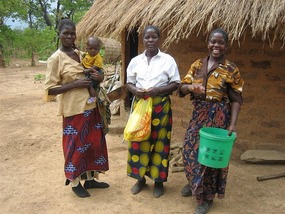
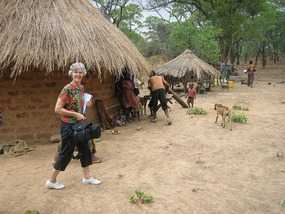
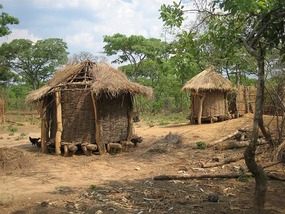
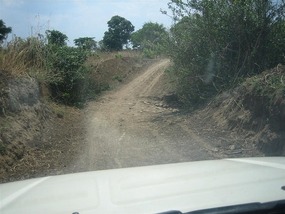
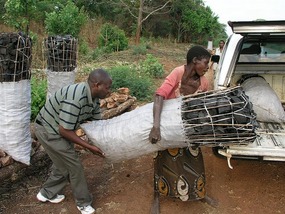





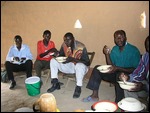
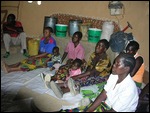
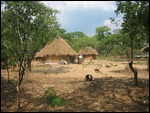
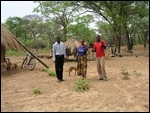
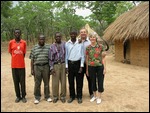
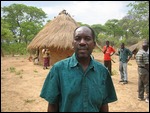
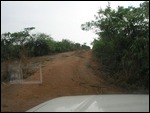
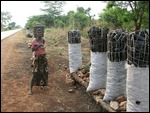
2025-05-22